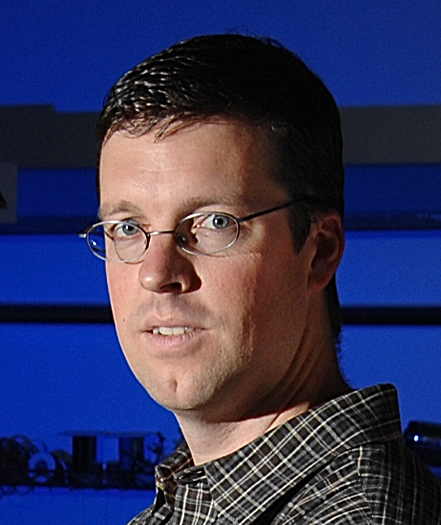Spring 2014 MnDRIVE Seminar Series
 |
Eric Frew,
University of Colorado at Boulder
|
Abstract
Wireless networked communication plays a key role in the coordination and control of robotic sensor networks. Most work in the field of cooperative control assumes simple graph-theoretic models to describe connectivity among neighboring agents. Unfortunately this model is overly simplistic and does not capture wireless network behaviors in realistic communication environments. In particular, wireless communication is not easily described by sets of “links”, but rather, communication capability changes as a function of relative positions between agents, and fading (noise) effects are difficult to predict. This presentation describes a framework for controlled mobility of unmanned aircraft systems comprised of multiple aircraft performing information-gathering tasks in realistic communication environments.
A communication-aware information gathering framework will be presented that combines sensing and communication. First, non-parametric learning techniques will be described in order to learn variations in the communication environment from empirical models. Second, joint bandwidth allocation and motion planning for data ferrying, where data is stored and carried by a moving network node, will be described. The cascaded structure of the problem is exploited, allowing for the use of heuristic bandwidth allocation policies that decrease computational time. Third, the presentation examines the problem of distributed path planning for a mobile sensor network optimizing mutual information over packet erasure channels that model multi-hop communication. Finally, experimental results obtained from the Research and Engineering Center for Unmanned Vehicles (RECUV) Heterogeneous Unmanned Aircraft System (R-HUAS) are discussed.
Biosketch
Eric W. Frew is an associate professor in the Department of Aerospace Engineering Sciences and Director of the Research and Engineering Center for Unmanned Vehicles (RECUV) at the University of Colorado Boulder (CU). He received his B.S. in mechanical engineering from Cornell University in 1995 and his M.S and Ph.D. in aeronautics and astronautics from Stanford University in 1996 and 2003, respectively. Dr. Frew has been designing and deploying unmanned aircraft systems for over ten years. His research efforts focus on autonomous flight of heterogeneous unmanned aircraft systems; distributed information-gathering by mobile robots; miniature self-deploying systems; and guidance and control of unmanned aircraft in complex atmospheric phenomena. Dr. Frew was co-leader of the team that performed the first-ever sampling of a severe supercell thunderstorm by an unmanned aircraft. He is currently the CU Site Director for the National Science Foundation Industry/University Cooperative Research Center (IUCRC) for Unmanned Aircraft Systems. He received the NSF Faculty Early Career Development (CAREER) Award in 2009 and was selected for the 2010 DARPA Computer Science Study Group.